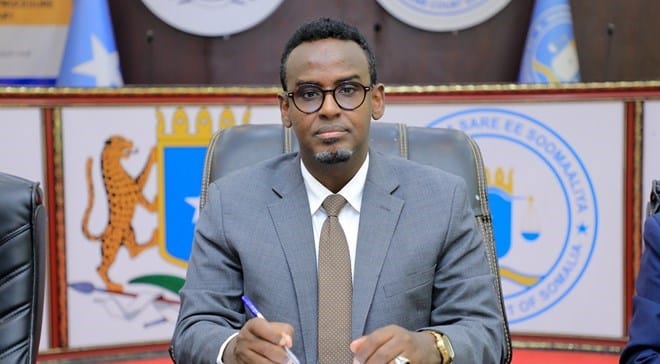The Somali government has unveiled a renewed campaign to dismantle human trafficking networks responsible for smuggling Somali citizens into exploitative and often deadly conditions abroad.
Speaking at a press conference on Tuesday, Attorney General Suleiman Mohamud Mohamed confirmed that Somalia is intensifying efforts to track, arrest, and repatriate traffickers operating both inside the country and abroad. The campaign is being supported by international partners, including agencies focused on cross-border crime prevention.
“It is becoming easier for us to repatriate our Somali citizens in Sudan, Libya, Algeria, and Morocco who have committed crimes in Somalia, using legal procedures that facilitate the collection of information and evidence,” the Attorney General stated.
The announcement follows Somalia’s formal accession to the United Nations Convention against Transnational Organized Crime, a move that enhances the country’s ability to cooperate globally on extradition, evidence-sharing, and the prosecution of trafficking crimes.
The development comes amid an alarming rise in irregular migration, particularly among young Somalis seeking routes to Europe through dangerous overland paths and perilous Mediterranean crossings. Many migrants are intercepted or detained in North African countries, where they face abuse, extortion, and in some cases, torture by trafficking syndicates.
Just last month, the Banadir Regional Court convicted and sentenced six individuals involved in a trafficking ring that targeted vulnerable Somali youth. The case drew national attention and highlighted the growing threat posed by smuggling and trafficking networks within Somalia and beyond.
Government officials say the new framework will enable authorities to pursue traffickers more effectively, both domestically and internationally, while working with regional partners to rescue and repatriate Somali nationals trapped in trafficking situations abroad.
“This is about safeguarding our citizens and holding criminals accountable, wherever they may be,” said Suleiman.
The government has also urged families and communities to report suspected trafficking activities and to discourage young people from taking irregular migration routes, which have led to numerous deaths and disappearances in recent years.
Human rights advocates welcomed the government’s move, calling it a critical step toward dismantling the networks that prey on desperation and economic hardship.
As Somalia strengthens its legal and diplomatic tools to confront transnational crime, authorities hope the campaign will not only deter traffickers but also restore faith in state institutions to protect the rights and dignity of all Somali citizens.



